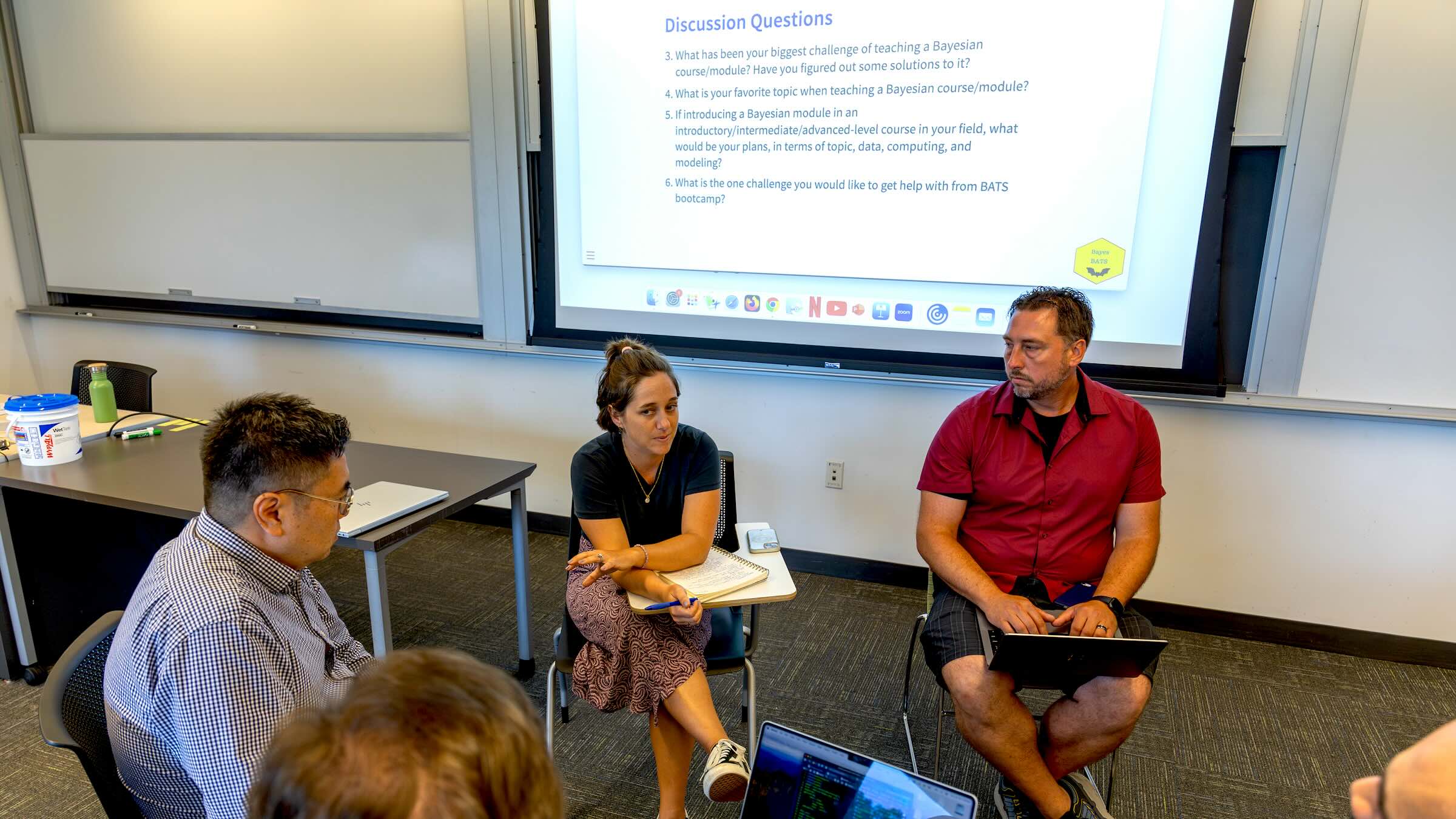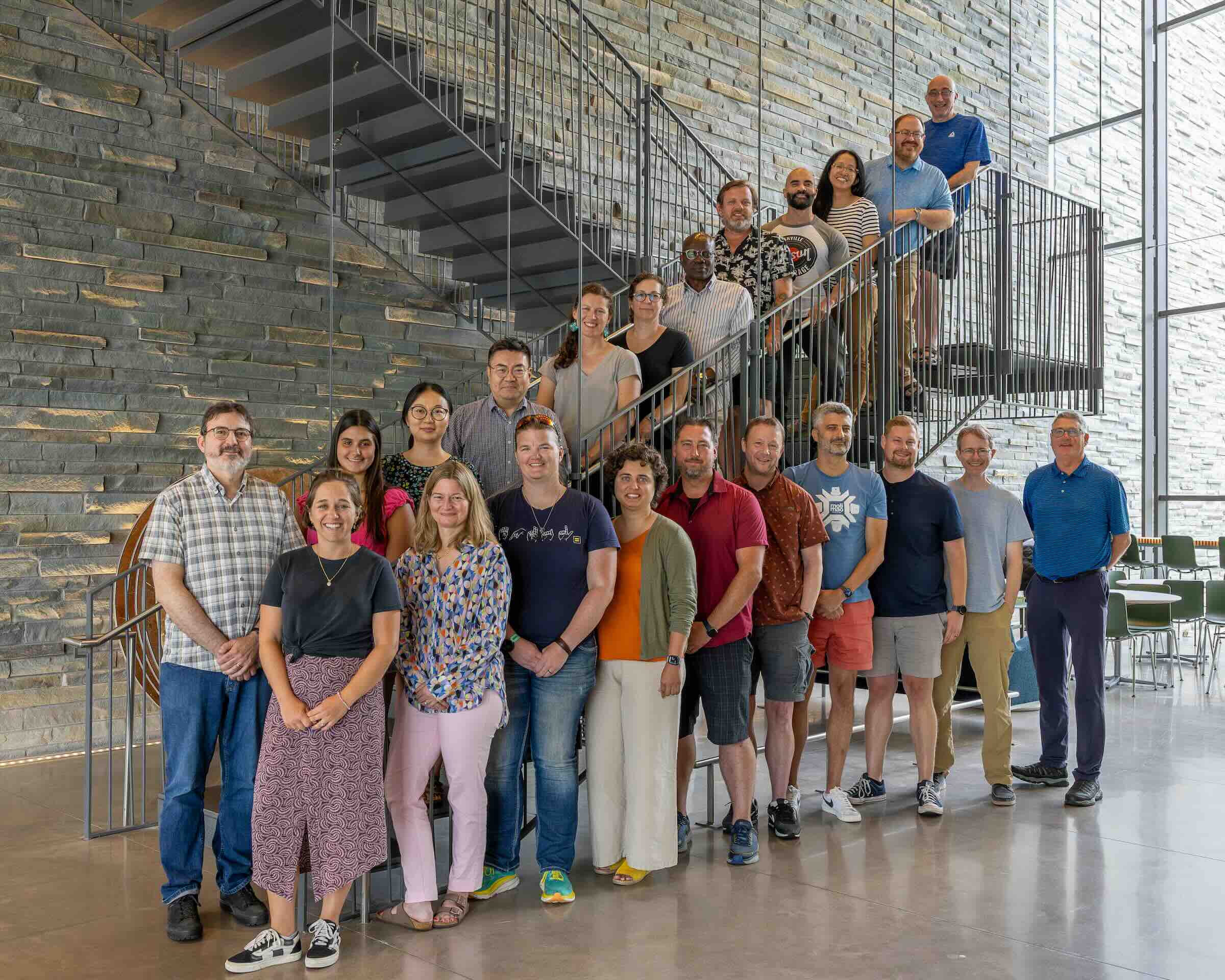Vassar Professor Leads Effort to Teach Statistics System to Undergrads
Bayesian statistics, a method of computing probability in scientific research, allows researchers and practitioners to use available data to help predict future outcomes. It is based on a theorem devised by Thomas Bayes in the 18th Century, but another method of statistical inference, known as the frequentist paradigm, is the mainstream system taught in the vast majority of colleges and universities.

Recently, some members of the academic community, including Vassar Associate Professor of Mathematics and Statistics Jingchen (Monika) Hu, launched a campaign to make the teaching of Bayesian statistics more common and accessible at the undergraduate level for a variety of Science, Technology, Engineering, and Mathematics (STEM) fields. Hu recently obtained a grant from the National Science Foundation (NSF) to convene a Bayesian “bootcamp” on the Vassar campus for undergraduate faculty members from nearly two dozen colleges and universities, representing a diverse range of STEM disciplines. The weeklong event, titled Collaborative Research: Advancing Bayesian Thinking in STEM, was held in July in Olmsted Hall. A similar bootcamp was held last year at the University of California at Irvine.

Hu, who has been teaching a course in Bayesian statistics at Vassar for several years, said she was grateful to have received the NSF funding for the bootcamp. “I have done a lot of prior and ongoing work on advancing Bayesian education at the undergraduate level,” Hu said. “All of the participants who attended had had some exposure to the study of statistics, but some had never heard of the Bayesian method, and we want to give it wider exposure. When this bootcamp ended, every participant expressed interest in developing teaching and learning materials that they can use for their courses.”
Mine Dogucu, Associate Professor of Statistics at UC Irvine and a principal investigator on this grant, said she was impressed by the dialogue that had taken place among the bootcamp participants. “We believe the Bayesian method of statistical analysis makes interpretation of scientific data—especially complex data—more accurate,” Dogucu said. “It is being taught at the graduate level, but we are advocating for it to be taught to undergraduates as well. This bootcamp has been a holistic cross-training program on Bayesian statistics as well as other aspects of teaching and pedagogy.”
Amy Herring, Professor of Statistical Science at Duke University and another principal investigator (PI) on this grant, said she agreed with Hu and Dogucu that teaching Bayesian principles was becoming increasingly important. “We now have many complex scientific models to analyze, and Big Data problems can be solved much more readily with this technique,” Herring said.
Szofia Lewis ’24, who is serving as a teaching assistant of the bootcamp and was a Mathematics and Statistics major at Vassar, said she had taken Hu’s class during her senior year and took part in a group project analyzing ratings criteria for thousands of movies. She said she and others in the class concluded that using Bayesian techniques helped them in their research. “We discovered that complex data was much easier to analyze using Bayesian methods,” Lewis said.
One participant at the workshop who was not a scientist, City University of New York (CUNY) philosophy professor Eldar Sarajlic, said he found the training useful as well. “This experience gave me some ideas on how to approach a course I teach on critical thinking,” Sarajlic said. “I think my students will become better critical thinkers if they learn new ways to navigate uncertainty.”